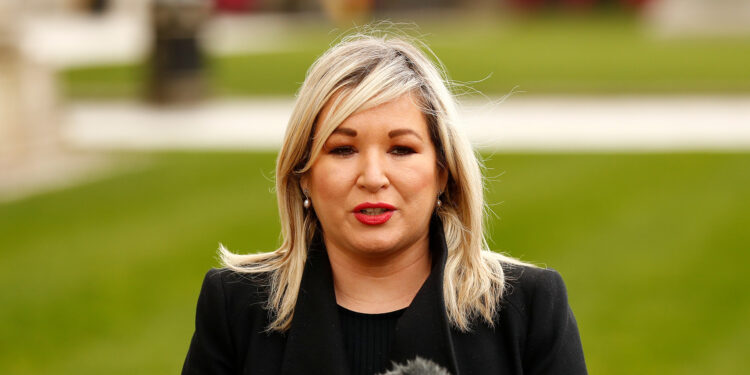Northern Ireland Prime Minister Michelle O’Neill said that the Islamic Resistance Movement (Hamas) will ultimately be a partner in the Middle East peace process, and called on the international community to stand united to stop the Israeli massacres against Palestinians in the Gaza Strip.
The Prime Minister expressed her refusal to justify what Israel is doing as self-defense, and said that some people exaggerate when they describe Israel’s position as self-defense, but the continuous bombing and massacres of the Palestinian people that take place day after day say otherwise.
O’Neill also expressed – during an interview with LBC Radio – her hope that a ceasefire agreement would be reached in the coming days and weeks and a dialogue would begin that would lead to a final solution represented by the establishment of a recognized Palestinian state, within the framework of the two-state solution supported by society. International.
In response to a question comparing the current Western position on Hamas, where it classifies it as a terrorist organization, with the position on the Irish Republican Army in the past, when it was classified as a terrorist organization, and whether the movement will be a partner in the peace process in the future, O’Neill said, “Yes, I think you should.” You only have to look at our experience to realize how important dialogue is and that it is the only way to end the conflict. If the British government had not dialogued with the Irish Republican Army in the past, we would not be living the scenario we are in today, where we enjoy a more equal and peaceful society.”
She said that she was seizing the opportunity to “call for a ceasefire and an end to the massacres against innocent Palestinians,” and described Gaza as “becoming a cemetery for children,” and stressed that “the war on the Gaza Strip should not be a cemetery for international law.”
It is noteworthy that O’Neill – who leads the Irish nationalist party “Sinn Féin” – was appointed First Minister of Northern Ireland last week, in a historic shift that ended the sharp differences between the nationalists who support the secession of Northern Ireland and the unionists who support the British Crown regarding the status of Northern Ireland after Britain’s exit from the European Union. .



